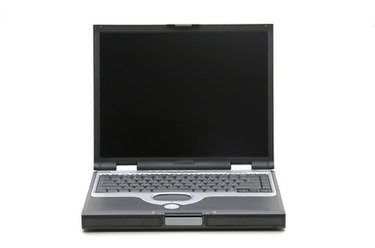
An IRQ (Interrupt Request) number is assigned to all the hardware devices installed in a computer that are used to input information, for example the mouse or the keyboard. On a PC, some IRQs are predefined, so the Keyboard controller is always given an IRQ of 1, for example. IRQs 5, 7, 9, 10, 11, and 12 are usually left available for add-on devices. In modern computers, IRQs are usually assigned dynamically and it is rare to see an IRQ conflict. If two devices on the computer do have the same IRQ number assigned to them, the IRQ conflict will cause one or both of them to fail. You can troubleshoot IRQ issues from Device Manager in computers running Windows.
Step 1
Click "Start," then click "Control Panel" to open the Control Panel window. Double-click the "System" icon to open the "System Properties" window.
Video of the Day
Step 2
Click the "Hardware" tab, then click the "Device Manager" button. This opens the Device Manager.
Step 3
Click the "View" menu at the top of the Device Manager window. Select "Resources by type" from the drop-down list. This displays a list of resource types.
Step 4
Click the expansion box next to the "Interrupt request (IRQ)" icon. This displays a list of system devices and the IRQ numbers assigned to them. Devices with conflicting IRQs will be identified by an exclamation mark inside a yellow circle. Make a note of the IRQ number issued to the conflicting devices.
Step 5
Right-click each conflicting device and select "Properties." In the Properties window for each device, click the "Resources" tab. Check to see if the conflicting devices have reserved IRQs. If the option to change resource settings is unavailable (greyed-out) you can not reassign IRQs from within Device Manager because the IRQs are resereved. If the option to change the IRQ resource setting is available, you will be able to assign a new IRQ if one is available. Close all open windows.
Video of the Day